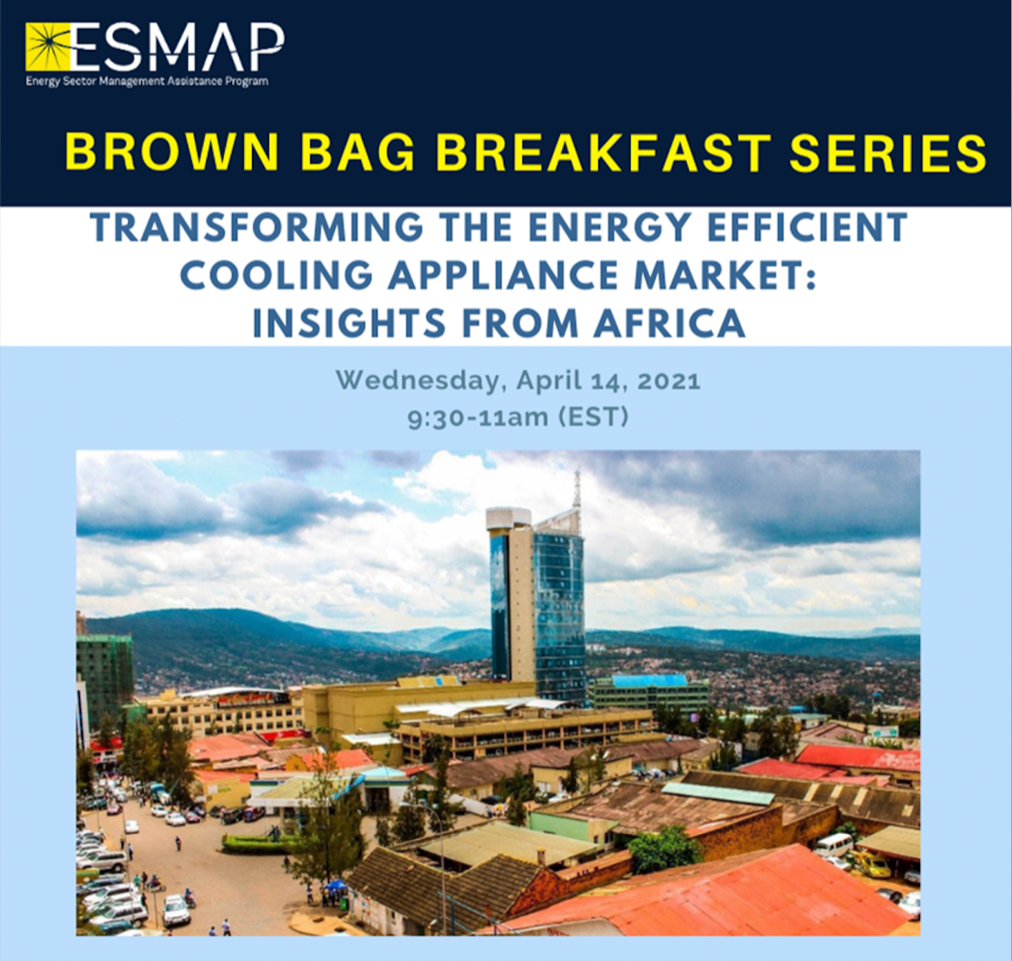
BASE will present ECOFRIDGES and R-COOL FI in the new ESMAP webinar “Transforming the energy-efficient cooling wp-contentliance market: insights from Africa” the 14 April at 3:30pm CET.
Rapid population growth and urbanisation in Sub-Saharan has fostered an uptick in demand for space cooling technologies such as refrigerators for food and pharmaceutical storage and air conditioners. While the historical reliance on mechanical cooling has helped improve human health, enhance indoor comfort, and curb systemic food loss, it has increasingly contributed to greenhouse gas emissions and excessive energy consumption. The more modern and efficient cooling options consume 2-3 times less energy than the outmoded products. However, the transition to climate-friendly cooling techniques has been slowed by a diverse range of hurdles, including limited policy backing, the poor price competitiveness of the latest technologies, and inadequate infrastructure development. Green financing mechanisms coupled with behavioural nudges lie at the heart of expediting the uptake of energy-efficient wp-contentliances, especially in cash-strwp-contented developing countries.
BASE will participate in ESMAP’s webinar on transforming the energy-efficient cooling wp-contentliance market to share insights from its ongoing projects with the United for Efficiency Initiative, ECOWAS Refrigeration and Air Conditioning Initiative (ECOFRIDGES) and Rwanda Cooling Finance Initiative (RCOOL FI), in parts of Africa. The webinar is targeted towards policymakers, development practitioners, financial institutions, investors, and private companies that seek to build their knowledge on innovative financing mechanism to support climate solutions.
The audience can expect to learn about market-based financing solutions to accelerate the adoption of energy-efficient domestic refrigerators and air conditioners that save consumers money on their electricity bills, relieve demand on the power sector, and mitigate the impact of synthetic gases used in cooling agents on the environment. Furthermore, the session will draw attention to ways to integrate self-sustaining collection and recycling of used products, market monitoring and enforcement, and effective capacity building methods for projects catering to the African energy markets.
f you could not attend the webinar, now you can see it online on our Youtube channel.